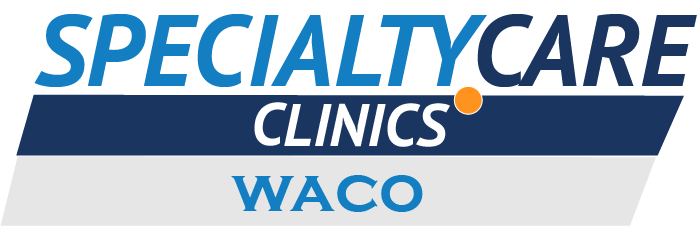The Role of Occupational Health Services in Workplace Drug Screening
Workplace drug screening programs are implemented by employers to identify and address potential drug use among employees. These programs aim to create a safer and more productive work environment by reducing the risks associated with substance abuse, such as accidents, injuries, and decreased productivity. Occupational health services play a crucial role in the successful implementation and management of these programs.

The Importance of Drug Screening in the Workplace
- Enhanced Workplace Safety:
- Reduces the risk of accidents and injuries caused by impaired employees.
- Minimizes the risk of workplace violence.
- Improved Productivity:
- Reduces absenteeism and presenteeism (employees present at work but not fully productive due to substance abuse).
- Enhances employee morale and overall workplace productivity.
- Reduced Liability:
- Helps employers mitigate legal and financial liabilities associated with accidents and injuries caused by impaired employees.
- Compliance with Regulations:
- Ensures compliance with federal, state, and industry-specific regulations regarding drug-free workplaces.
- Maintaining a Professional Image:
- Projects a professional and responsible image to clients, customers, and the public.
Types of Drug Screening Methods Offered by Occupational Health Providers
Pre-Employment Drug Testing
Pre-employment drug testing is conducted during the hiring process to ensure that potential employees are free from substance abuse. This type of testing is often a standard part of the onboarding process, especially in industries where safety and security are paramount.
Random Drug Testing
Random drug testing involves selecting employees at random intervals for testing. This method serves as a deterrent to substance abuse, as employees are less likely to engage in drug use if they know testing can occur at any time.
Post-Accident Drug Testing
After a workplace accident, post-accident drug testing is conducted to determine if substance abuse was a contributing factor. This type of testing is crucial for identifying the root cause of incidents and preventing future occurrences.
Reasonable Suspicion Drug Testing
When an employee exhibits behavior or performance issues that suggest substance abuse, reasonable suspicion drug testing is conducted. This type of testing requires documentation of observable signs and symptoms to justify its necessity.
Return-to-Duty Drug Testing
Employees who have previously tested positive for drugs or have completed a rehabilitation program must undergo return-to-duty testing before resuming work. This ensures they are fit to return to the workplace.
Periodic Drug Testing
Periodic drug testing is conducted at regular intervals, often as part of an annual health check-up. This type of testing is commonly used in safety-sensitive industries.
Drug Testing Methods and Technologies
Urine Testing
Urine testing is the most common method for drug screening due to its reliability and cost-effectiveness. It can detect recent drug use and provides a wide detection window for various substances.
Saliva Testing
Saliva testing is less invasive and easier to administer, making it a popular choice for on-site testing. However, its detection window is shorter, typically identifying drug use within the past 24-48 hours.
Hair Follicle Testing
Hair follicle testing provides a longer detection window, capable of identifying drug use over several months. This method is highly reliable but more expensive and invasive.
Blood Testing
Blood testing is the most accurate method but is also the most invasive and costly. It is typically used in situations requiring precise results, such as post-accident investigations.
Breath Testing
While primarily used for alcohol detection, breath testing is quick, non-invasive, and commonly employed during random or post-accident testing.
Benefits of Occupational Health Services for Drug Screening

For Employers
- Risk Mitigation: Identifying and addressing substance abuse reduces workplace accidents and liabilities.
- Improved Productivity: A drug-free workplace fosters better employee performance and morale.
- Legal Protection: Compliance with drug testing regulations minimizes legal risks.
- Cost Savings: Reduced absenteeism and healthcare costs lead to significant savings over time.
For Employees
- Enhanced Safety: A drug-free workplace protects employees from accidents caused by impaired colleagues.
- Support for Recovery: Testing programs often include resources for employees struggling with substance abuse, such as access to counseling and rehabilitation services.
- Job Security: Employees in a drug-free environment are more likely to feel secure in their roles, knowing that their workplace prioritizes safety and well-being.
Legal and Ethical Considerations
Compliance with Laws
Employers must adhere to federal, state, and local regulations governing drug testing. This includes understanding specific requirements for their industry and location.
Employee Rights
Drug testing policies should respect employees’ rights, including the right to privacy and the right to challenge test results. Employers must also accommodate individuals undergoing treatment for substance abuse under the Americans with Disabilities Act (ADA).
Ethical Practices
Ethical considerations include avoiding discriminatory practices, ensuring transparency in testing procedures, and providing support for employees struggling with addiction.
Importance of Employee Education and Assistance Programs
- Employee Education:
- Conducting employee education programs to raise awareness about the dangers of drug use and the importance of a drug-free workplace.
- Employee Assistance Programs (EAPs):
- Offering access to employee assistance programs to provide support and resources for employees struggling with substance abuse issues.
Conclusion
Workplace drug screening programs, when implemented effectively, can significantly enhance workplace safety, improve productivity, and reduce the risks associated with substance abuse. Occupational health services play a critical role in the successful implementation and management of these programs, ensuring accuracy, confidentiality, and compliance with all relevant regulations. By partnering with qualified occupational health providers, employers can create a safer and more productive work environment for all employees.
Contact our Occupational health services for comprehensive drug screening services (254) 308-7868 or visit us https://sccwaco.com/
